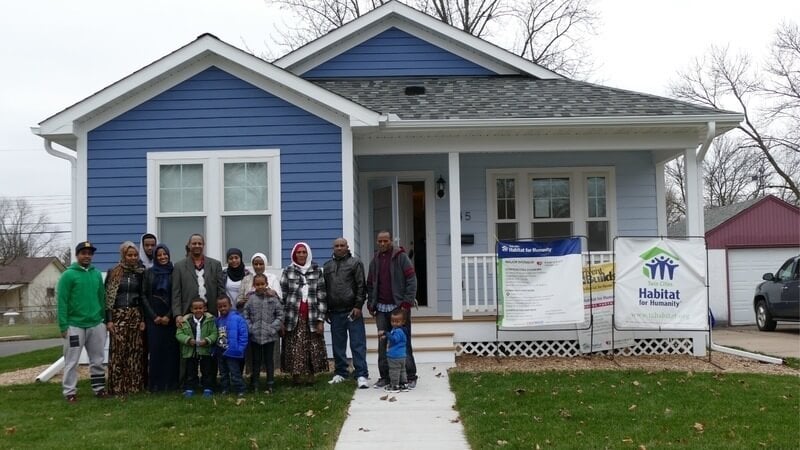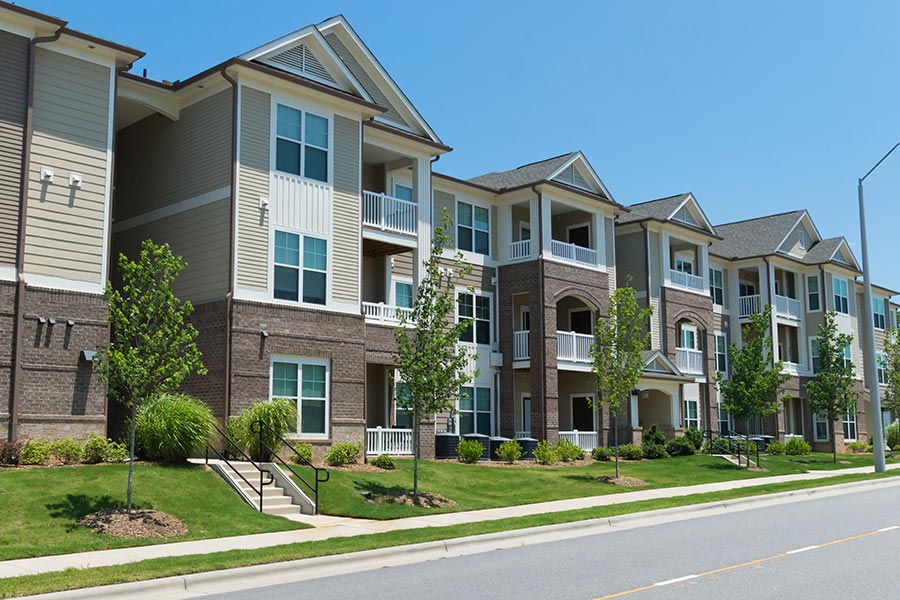Budget-friendly Homeownership Options for First-Time Homebuyers
As the housing market proceeds to evolve, new buyers encounter special difficulties in protecting inexpensive homeownership options. Numerous sources, consisting of government aid programs, low-down-payment home mortgages, and targeted grants, have arised to relieve monetary pressures. These initiatives not just assist in homeownership however also foster area stability and economic development. Navigating these choices can be intricate, and understanding which paths are most valuable requires cautious factor to consider. What approaches can prospective homeowners use to maximize their possibilities in this landscape?
Federal Government Assistance Programs
Federal government assistance programs play an important function in making homeownership possible for numerous people and family members. These programs aim to ease the economic concern connected with acquiring a home, particularly for newbie customers. By offering financial assistance, gives, and tax incentives, government campaigns help connect the gap in between increasing real estate prices and the purchasing power of potential house owners.
Numerous programs are readily available at the government, state, and local levels. For instance, the Federal Housing Administration (FHA) supplies insurance policy on car loans, enabling loan providers to use much more desirable terms, such as reduced deposits and lowered rates of interest. In addition, state and city governments commonly have their very own efforts, which may include deposit aid programs, buyer education and learning programs, and favorable mortgage terms.
These programs are designed to resolve the special difficulties dealt with by low- to moderate-income family members, consisting of restricted savings and credit report. By promoting an atmosphere where homeownership is much more available, government aid programs not just support individual aspirations yet likewise add to neighborhood stability and financial growth. Recognizing and using these sources can dramatically boost the prospects of effective homeownership.
Low-Down-Payment Mortgages
For many ambitious property owners, low-down-payment home mortgages present a sensible pathway to homeownership, specifically in today's challenging real estate market. These mortgage choices typically need down payments ranging from 3% to 5%, making it simpler for newbie buyers to enter the marketplace without the concern of conserving for a significant down repayment.
Numerous lenders use low-down-payment programs, consisting of conventional financings backed by Fannie Mae and Freddie Mac, in addition to government-backed choices like FHA loans. These home loans are created to suit individuals with limited cost savings while still giving affordable rates of interest. Importantly, they enable purchasers to preserve even more cash money for other important expenses, such as relocating prices, home inspections, and possible renovations.
However, prospective homeowners need to be conscious of the compromises connected with low-down-payment home loans. A smaller sized down repayment may cause greater month-to-month settlements and the need of exclusive home mortgage insurance (PMI), which protects lenders in case of default. It is important for novice buyers to perform detailed research study and consult with mortgage specialists, guaranteeing they choose a low-down-payment choice that aligns with their lasting monetary goals.
First-Time Homebuyer Grants
Lots of first-time property buyers locate that gives can dramatically alleviate the financial problem of purchasing a home, matching low-down-payment mortgage choices. These gives, typically provided by state and regional governments or non-profit companies, use financial support that does not call for repayment, making them an eye-catching option for those entering the real estate market.
Eligibility for new property buyer gives usually depends on earnings, creditworthiness, and the purchase rate of the home. Numerous programs are created to assist low- to moderate-income family members, making sure that support reaches those who require it most. The application process often includes documents of financial condition, buyer education programs, and sometimes even a commitment pop over to this site to remain in the home for a particular period.
The amount helpful differs extensively, with some grants offering numerous thousand dollars to help cover closing expenses or down repayments. Researching offered gives in your area is necessary, as programs regularly transform and might have details needs. By leveraging these funds, new buyers can make homeownership extra accessible, ultimately achieving their imagine possessing a home while minimizing internet the first economic strain.
Innovative Area Campaigns
Cutting-edge neighborhood campaigns are playing a critical duty in expanding inexpensive homeownership options for residents. These campaigns frequently involve collaborative initiatives between local federal governments, charitable organizations, and economic sector stakeholders to develop sustainable real estate options tailored to community demands.
One noteworthy approach is the facility of neighborhood land trusts (CLTs), which permit locals to purchase homes while the land stays owned by the trust fund. This design helps preserve affordability with time and stops speculative price rises. Furthermore, CLTs often supply educational sources and support solutions to empower new property buyers.
An additional efficient campaign is the advancement of mixed-income real estate projects, which mix budget friendly systems with market-rate homes. This strategy fosters inclusive areas and decreases the preconception typically connected with low-income real estate. Additionally, city governments are increasingly supporting zoning reforms to facilitate the building of accessory dwelling units (ADUs), which can supply additional rental revenue for homeowners while boosting real estate availability.

Tips for Budgeting and Saving

Following, develop a dedicated financial savings account especially for your future home acquisition. Aim to save a portion of your revenue consistently, ideally 20% or more, to develop a significant deposit. Use automation devices, such as straight down payment or automated transfers, to make conserving easier and much more constant.
In addition, take into consideration adopting the 50/30/20 guideline: assign 50% of your earnings to needs, 30% to desires, and 20% to cost savings and financial obligation payment - Affordable Homeownership. This technique advertises well balanced monetary health and wellness

Verdict
In recap, economical homeownership alternatives for first-time homebuyers include different sources such as federal government aid programs, low-down-payment mortgages, and grants. By leveraging these economic devices, people can navigate the complexities of homeownership, ultimately contributing to a more equitable housing landscape.
As the real estate market proceeds to advance, new buyers encounter one-of-a-kind challenges in securing budget-friendly homeownership choices. By promoting a setting where navigate here homeownership is extra obtainable, federal government support programs not only sustain private goals but additionally add to community stability and financial growth. By leveraging these financial sources, novice property buyers can make homeownership more obtainable, inevitably accomplishing their dream of having a home while reducing the initial monetary pressure.
In summary, economical homeownership choices for novice buyers include various sources such as government aid programs, low-down-payment home loans, and gives. By leveraging these monetary devices, individuals can browse the complexities of homeownership, inevitably contributing to an extra equitable real estate landscape.